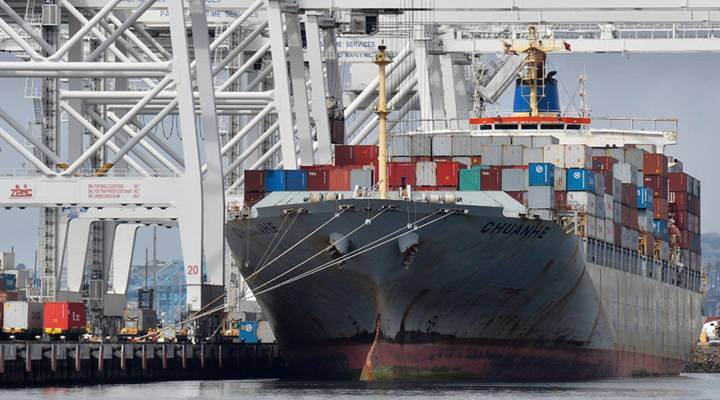
U.S. importer struggles to respond to trade war
U.S. importer struggles to respond to trade war

Raise your hand if you’re struggling to keep up with all these tariffs.
This week, the Trump administration imposed a new round of tariffs on $200 billion worth of Chinese products. And importers, like Jeff Starin, had just one week’s notice in advance.
Starin is president of Rostar Filters in Oxnard, California. It sells all kinds of filters for cars. Some it makes; some it imports from China.
Starin calls his company “methodical” in its planning. But his business model suddenly blew up a week ago Monday when the latest tariffs were announced.
“We have containers that departed port in China when there was no tariff,” he said. “And by the time they’re arriving here in Los Angeles, there will be a tariff.”
This is the Trump administration’s third round of tariffs on Chinese stuff. In July, all the cabin air filters Rostar imports faced tariffs. Now, it’s all Chinese filters he imports.
“We have to pay those tariffs up front, no matter what. For example, a container of cabin filters, once this first round of tariffs went in, that duty was [$12,000] or $13,000, per shipping container,” he said.

Rostar Filters in Oxnard, California, imports and makes filters for cars. All the filters from China face tariffs.
Often he has dozens of containers on the ocean at a time. So now he’s paying hundreds of thousands of dollars in tariffs up front. And he won’t make that money back for months.
“That puts an enormous financial strain on the finances of a small family-owned business,” he said.
The argument for tariffs is they return jobs to the United States. Indeed, Starin’s customers are pleading for more U.S.-made filters from his California workshop so they can avoid higher costs.
Thing is, there’s no magic button to boost production from 1,000 filters per hour to 5,000. He could invest in another assembly line.
“It would take us a year to get it, realistically,” he said. “We don’t know what the landscape will look like in a year.”
Would the tariffs be gone by then? Would all the extra orders dry up? Starin said the uncertainty is challenging.
“Tell me the good news or tell me the bad news. But let me know what it is so I can react,” he said. “Businesses cannot operate in an environment of not knowing what’s coming with such major things.”
Which leaves him with what he calls bad choices. He could turn away customers or import from another country, which means starting over and finding brand new suppliers.
International trade attorney Lynn Fischer Fox at Arnold & Porter has been advising companies caught in the trade war.
“This is a story we’re hearing over and over again,” she said. “They have relationships with Chinese manufacturers who are making the products to specific specifications. There’s probably a long process of qualifying those factories and making sure they know how to make the products properly and knowing you have good quality control,” she said.
So many companies like Starin’s don’t have a choice but to continue sourcing from China and pass along the tariff costs to customers.
“Our industry is largely made up of small, family-owned businesses,” Starin said. “We don’t have the resources to absorb these costs.”
He said a lot of auto services will get more expensive as a result.
“Think about the owner of a vehicle, their brake job just went up by $120,” he said. “Well, they’re probably going to put that off. They’re not going to be able to afford it. That’s concerning to me.”
Fewer customers and fewer sales would hurt the economy, said trade attorney Fischer Fox.
“These are the kinds of things that economists are constantly warning us about,” she said. “You know, changing the price from $10 to $12 will make somebody not buy it. And enough somebodies don’t buy it, there are going to be impacts.”
As in, potentially fewer jobs in companies like Starin’s.
“I love the idea of bringing jobs back to the U.S.,” he said. “From what I see, this is going to cost far more jobs than it creates.”
This week’s new tariffs go up from 10 percent to 25 percent in January.
There’s a lot happening in the world. Through it all, Marketplace is here for you.
You rely on Marketplace to break down the world’s events and tell you how it affects you in a fact-based, approachable way. We rely on your financial support to keep making that possible.
Your donation today powers the independent journalism that you rely on. For just $5/month, you can help sustain Marketplace so we can keep reporting on the things that matter to you.


















